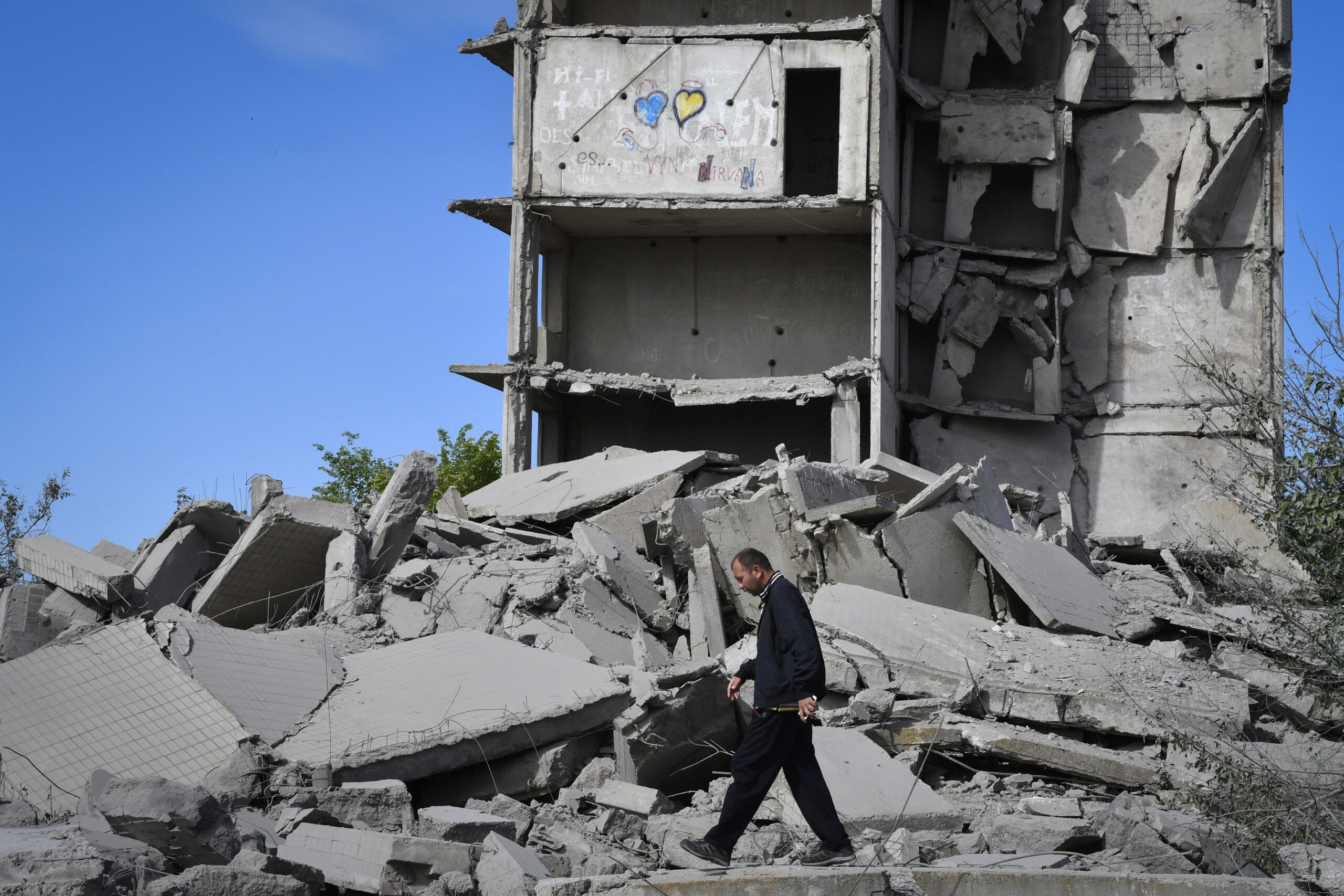“I haven’t taken my medication for a month. You’ve saved my life.” On the outskirts of Kramatorsk, the news that the Russians have taken Lyman, 40 kilometers to the north, has arrived just two hours ago. Next target: Slavisansk, the last exit from Severodonetsk and the gateway to Kramatorsk. Hundreds of civilians are still trapped in the middle: those who do not want to leave and those who cannot.
“I have Parkinson’s, I’m alone and if nobody brings me the pills, I die. I die.” Catherine’s hands shake as tears fall on them. In the sky missiles and artillery roar while the siren does not stop sounding. On the other side of the door, tulips and lilies planted a few weeks ago color the landscape.
A few streets away, near the bombed-out factory, Liuba and Valentina are relieved to receive a package of diapers. They are for Liuba, who cannot get out of bed. The mattress is soaked with urine, the air is unbreathable. On the bedside table, a bowl of stale soup. In the kitchen, an old stove. “Here there is practically no food. And what little you find costs gold. Gas has also been missing for weeks.”
Welcome to the hell of Donbas. “Why am I staying? Because I have to take care of these people.” Elena goes back and forth between the help center and the neighbors’ houses. Who left him the keys. Those who have stayed ask him for help to get the food packages.
“Look what I wrote on Facebook.” Open your profile on the phone. Blue sad eyes. She says that she has diabetes. “I have to treat myself with insulin.” She in a long post she describes the conditions of the houses of which she has become a guardian. “Some are destroyed. Others are still standing and I try to keep them alive, I feed the dogs so they don’t become dangerous. In one of them I watered the flowers so that at least something remains.”
But there are not only houses to take care of. A little boy on a bicycle passes by on the road. “He’s the son of a friend of mine, he didn’t want to go with his mother. And now I’m keeping an eye on him…”. He hasn’t finished the sentence and another roar shakes the ground. We went down with her to her shelter. “I made it just in case,” she says proudly. She then turns to a chair. “We made a hole in it and put a bucket under it. So we also have a bathroom. And we are willing to stay here even for a month, if necessary.”
In the center, at the station, the same one where 57 people were killed by two missiles when they tried to escape, on April 8, there are still signs of the explosion on the ground. Across the square, the Celentano restaurant is closed. “I used to work there as a waiter, now I drive reporters to the front,” explains Sergey.
At the checkpoint at the entrance to the town, a soldier asks where we are going. “Welcome to Kramatorsk, this is already front line, don’t you know?” he jokes. For the Russians, the road to Kramatorsk is still long, but “if it continues like this, they will be here in two weeks,” Sergey predicts. “I want to go to Lugansk, on the Russian side.”
A woman in her 70s approaches the car. She asks us to roll down the window. She very nervous. “Why do you want to go to the other side, are you crazy, Grandma?” asks Sergey. “I don’t care if they’re Russian or Ukrainian. I’m starving here.”
Kramatorsk, a ghost town, with all the shops closed but with municipal workers trimming the trees “so that they at least have something to do,” says Alexander Ivanov, a volunteer at Tato hub, an NGO that distributes aid. Kramatorsk welcomes the last escapees from Severendonetsk, the new Mariupol, to which the Russians are tightening the rope.
“I’m worried about Tiopa, she hardly eats anymore.” Anatoli Alexandrovic hugs his tabby cat. He is 75 years old, he has arrived this morning and now he is about to get on the bus that will take him to Dnipro. “I had to leave or Tiopa would not have survived. He has been my partner for the last 16 years, ever since my wife died.”
With him will travel Tatiana and Svetlana, who support each other. Old women, alone, scared. “We don’t have a home to stay in. We stayed even after 2015. We have always resisted. But not anymore. This is too much.”
Conforms to The Trust Project criteria
















